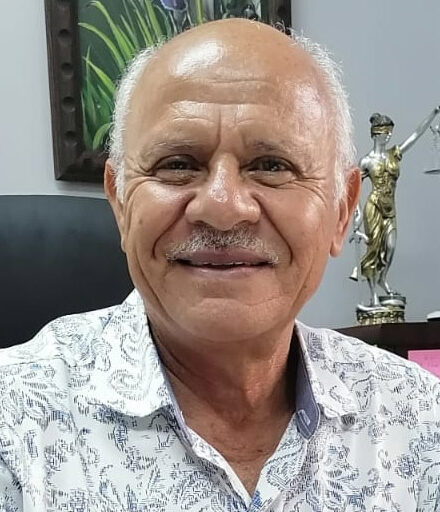
Costa Rica Will
Is your foreign will valid in Costa Rica ?
It is increasingly common to find a situation where a citizen of one country has a will drafted in their home country but they have also acquired real estate and other assets in Costa Rica. What happens if you die in the foreign country leaving assets in Costa Rica ? Do you need a separate Costa Rica will?
According to Article 905 of the Costa Rican Code of Civil Procedure if a Costa Rican or foreign citizen that is domiciled outside of Costa Rica leaves assets located in Costa Rica there is a process to recognize a foreign proceeding. If the probate case was filed in the foreign domicile then all the findings and judgments of the foreign court will be recognized in Costa Rica. To assert the validity of those foreign judgments the applicant will have to publish notice in the judicial bulletin for thirty days and then start a foreign judgment recognition action known as an Exequatur.
Should I have a Costa Rican Will?
An alternative in estate planning is to have will in Costa Rica, separate from any existing wills in a foreign country, which would be limited to disposition of the assets located within Costa Rica. This way, the local assets are probated with the local will, avoiding the judgment recognition (homologation) proceeding or interpretation of a foreign will. You need to be very cautious with this approach and it must be carefully analyzed by your legal advisor in conjunction with the will that you have in your home country. Most wills have revocation clauses and you want to make sure that one will is not revoking the other.

Add Your Heading Text Here
Do you have a will in your home country.? Is your will valid in Costa Rica..? Please let me take the time to explain to you the best options for you to make sure you fully understand how to approach this sensitive subject.
To begin with you need to understand that Costa Rica is a civil law legal system, quite different from the common law system of the United States, Canada and the United Kingdom. Therefore, it’s important to understand the differences between the two systems so you can make your plans to avoid negative results.
The probate process in Costa Rica can be overwhelming but that is the reason why you need to seek proper legal advice. We’ll gladly take the time to explain it to you, in order to make as smooth as possible.
There are thousands of foreigners that have in one way or another invested in Costa Rica, They either purchased property, invested in a business or opened bank accounts, or a combination of these. Despite this many of them have not given a single thought to what will happen to those investments and assets if they die. Thinking the solution is to rely of dispositions they made in their home country when they issued a will, not understanding how they will be implemented or if they have any bearing in Costa Rica.
In this article I decided to share some insights on how Costa Rican Legislation in order to help you understand how to deal with assets or investments in case of death.
When a foreigner owns assets in Costa Rica whether they are in their personal names or a corporation, after they died their will have to start a probate to have the property assigned or distributed to their legal heirs, depending on whether they have died with a Costa Rican will in place or not. With a foreign Will or without a Will.
 If a foreigner with assets in Costa Rica dies without a Will, the law provides that their property is divided proportionately between their legal spouse and their children. The process can be lengthy and generally requires the heirs to provide proof of marriage by way of a marriage certifications and the birth certificates of any children. All of which must be Apostilled and translated to Spanish. If there are any minor children as part of the estate then the Court would name the Child Welfare Protection Agency as a party to oversee their interests in the estate. A probate process in court with a Will can take more than a year to wind itself through the Costa Rican court system.
If a foreigner with assets in Costa Rica dies without a Will, the law provides that their property is divided proportionately between their legal spouse and their children. The process can be lengthy and generally requires the heirs to provide proof of marriage by way of a marriage certifications and the birth certificates of any children. All of which must be Apostilled and translated to Spanish. If there are any minor children as part of the estate then the Court would name the Child Welfare Protection Agency as a party to oversee their interests in the estate. A probate process in court with a Will can take more than a year to wind itself through the Costa Rican court system.
 If a foreigner with assets in Costa Rica dies without a Will, the law provides that their property is divided proportionately between their legal spouse and their children. The process can be lengthy and generally requires the heirs to provide proof of marriage by way of a marriage certifications and the birth certificates of any children. All of which must be Apostilled and translated to Spanish. If there are any minor children as part of the estate then the Court would name the Child Welfare Protection Agency as a party to oversee their interests in the estate. A probate process in court with a Will can take more than a year to wind itself through the Costa Rican court system.
If a foreigner with assets in Costa Rica dies without a Will, the law provides that their property is divided proportionately between their legal spouse and their children. The process can be lengthy and generally requires the heirs to provide proof of marriage by way of a marriage certifications and the birth certificates of any children. All of which must be Apostilled and translated to Spanish. If there are any minor children as part of the estate then the Court would name the Child Welfare Protection Agency as a party to oversee their interests in the estate. A probate process in court with a Will can take more than a year to wind itself through the Costa Rican court system.
 Having granted a Costa Rican Will following the Costa Rica Legislation can simplify the process, since the underlying document (the will) will comply with all the requirements by the local authorities and thus simplifying the execution. To grant a Costa Rican Will you will need to retain the services of a Notary Public to draft the will which needs to be signed in their presence and in the presence of witnesses. If you do not speak or write Spanish then the law requires that you have three witnesses and two translator witnesses for a total of five witnesses. If you die with a Costa Rican will in place then the heirs duly identified can open the probate process with that will and a certified copy of the death certificate. If there are no disputes with heirs or any minors as part of the estate the heirs can opt for a Notary Probate Process which is done before a Notary Public instead of through the court system. This is the simplest and quicker. Under certain circumstances this option may not be available but it is an option that you need to discuss with your probate attorney.
Having granted a Costa Rican Will following the Costa Rica Legislation can simplify the process, since the underlying document (the will) will comply with all the requirements by the local authorities and thus simplifying the execution. To grant a Costa Rican Will you will need to retain the services of a Notary Public to draft the will which needs to be signed in their presence and in the presence of witnesses. If you do not speak or write Spanish then the law requires that you have three witnesses and two translator witnesses for a total of five witnesses. If you die with a Costa Rican will in place then the heirs duly identified can open the probate process with that will and a certified copy of the death certificate. If there are no disputes with heirs or any minors as part of the estate the heirs can opt for a Notary Probate Process which is done before a Notary Public instead of through the court system. This is the simplest and quicker. Under certain circumstances this option may not be available but it is an option that you need to discuss with your probate attorney.






